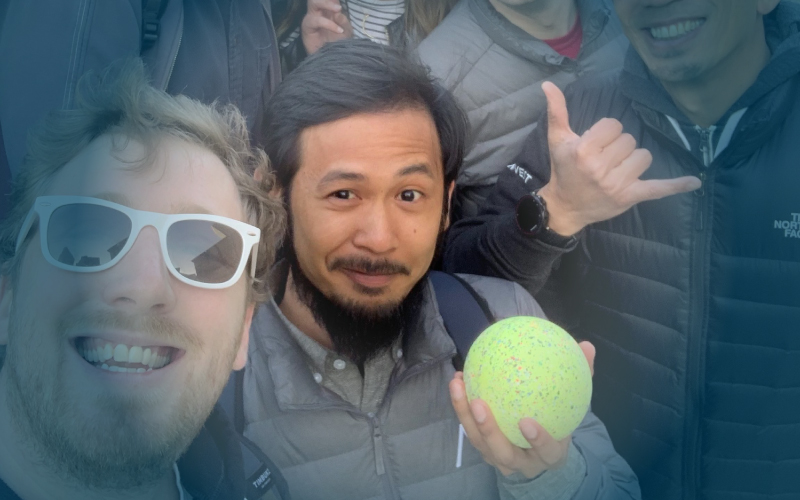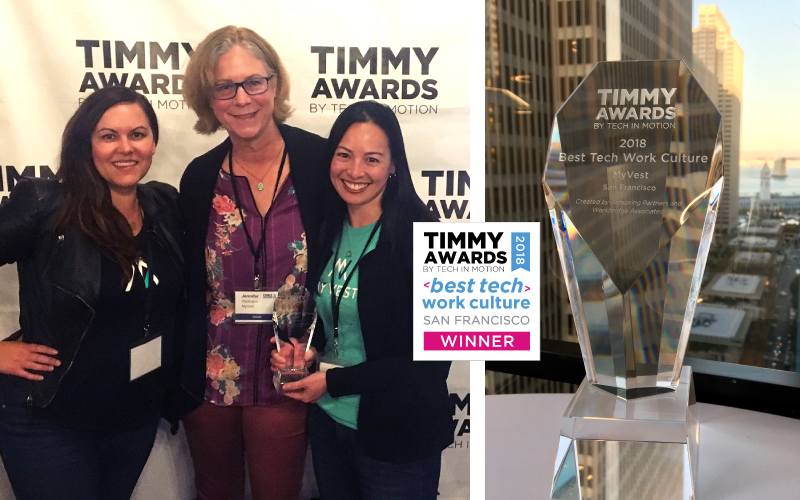By Nazanin Delam, Staff Software Engineer
There were many moments in my career that I was sitting in the meeting room knowing an answer to a question, but I did not trust my self enough to say it. Many times that I had an idea, but didn’t have enough courage to present it because I thought it is not the best. Moments later I heard someone else brought it up and I told myself “Why didn’t you say it earlier? You knew it!”
I am not sure if this is specific to women or not. As a woman I feel like I have more of these moments than my male peers. I see my male peers are fully confident representing their ideas or asking questions even if it is wrong. Or maybe there are men out there that feel the same. I started doubting myself even more by time and reached the point that I had to combat my self-doubt if I wanted to win my career as a software engineer.
I started asking around from other women in the office and outside to see if they had ever experienced the same moments or feelings, and yes! They all did! They all had the exact or similar moments when they hesitate! And yes, according to “Big Magic” by Elizabeth Gilbert: The moment of hesitation kills the creativity and may cause you lifetime of regrets.

I read many stories of engineers who lost opportunities, promotions, and chances to grow their careers, just because they didn’t have complete trust in themselves, they hesitated.
How can we combat self-doubt and prevent moments of hesitation? I will tell you my story.
Chapter 1: Get to know your inner-critic
I didn’t google search “How to deal with self-doubt,” I just realized I had to set aside some time, sit with my inner-self and ask “What is it that you are afraid of?” I had to deal with the voice inside my head first.
One evening, I made two cups of coffee and sat with my inner-self with a notebook and a pen, imagined I was interviewing the living person inside me.
I started with the first question to her: “Why did you doubt yourself today in the meeting room?”
I put myself in her shoes and tried to feel the same as I thought today.
She replied: “I was afraid that others think I do not know enough.”
I asked: “What is it that you don’t know enough as a software engineer?”
She replied: “I need more knowledge in networking principles, also I think I have to learn more about Distributed Systems more.”
I said: “OK, I put a goal to teach yourself these topics in two weeks.”
She felt good! And we continued…
Chapter 2: Start Learning
I started learning topics and teaching my inner-self. After a week I felt 50% more confident than before. I was not that afraid. I felt even if I was not proposing the best solution, I have confidence that I’m not recommending something false. I continued interviewing my inner-voice and keep learning for a month. After a month, I felt even more confident and stronger.
Indeed, lack of knowledge and stress of not knowing can lead to self-doubt, and of course, you cannot learn and remember all of the software engineering topics since there will always be something new to learn. But, you can have some general knowledge of areas you don’t know. In this case, you will not be in shadow when others are discussing it.
But what is more important is knowing that not knowing something is fine. No one expects you to know every detail. It’s OK to say:
“ I don’t have enough information about this topic. Let me look into it and I will get back to you with an answer.”
Replying this way gives others more trust in what you’re saying since you’re demonstrating that you won’t speak to something when you don’t have sufficient information.
Chapter 3: Don’t be a perfectionist
Learning is always good, but it is not the only medicine. The other reason that I hesitated presenting my thoughts and ideas was that I wanted those to be the best ones! But I had to accept that they couldn’t be.
I had to accept the fact that a draft idea or first-time leadership of a project cannot be the best one and the perfect one. I kept telling myself if I represent something for the first time, it should be good enough and based on facts and backed up with information. So I changed my sentencing when I was in meetings. Instead of saying:
“I have Solution A which can solve this problem completely”
I started saying:
“I recommend Solution A and we can develop it further to capture all requirements.”
This way I presented my idea confidently and encouraged more collaboration within the team to brainstorm with my recommendation as a baseline.
Pitch yourself on failure. Know that all successful people have failed many times before they could find their inner treasure and share it with the world. Tell yourself that failure does not exist as long as you do your best. This is just learning experience on the way of success.

Chapter 4: You earned it!
I discussed the issue of self-doubt with my mentor. She told me a story of herself when she was in college and was not performing well in her math class. One day her professor asked her about her inadequate performance and she responded: “I am not good at math, I should not be in this class!”
Her professor smiled and replied: “If you are in my class, then know that you deserve it and can lean it! So trust yourself. Otherwise, you wouldn’t be here.”
From that day moving forward, whenever she encounters a challenge in her life or career, she reminds herself that she has the knowledge and ability to tackle the problem.
If you ever doubted that you are a good software engineer or a team lead, remind your self the following:
You are here because you are a great software engineer, an intelligent problem solver and you earned this. That is why they have offered you to solve this challenge.
If you feel scared after a promotion, and you doubt your knowledge or experience, don’t! Because others did not doubt you. They have given you this title cause you earned it. So believe in your abilities, because if you don’t, no one will.
If you have been offered a project to lead and you are not sure about accepting it or considering telling your manager maybe you do it another time, don’t! If your manager thought you could not handle this, he would not have been assigned you this task in the first place. So, trust your self, because others trust you!
Chapter 5: Happily ever after with reflection
I still have scheduled times on my calendar to meet my inner-critic, all-time-unremitting-criticizer of mine, every month. The more I know her the more I can understand its problems and better develop my self-confidence.
Dealing with self-doubt is a constant challenge. You need to accept your inner-critic voice and know that is natural to doubt yourself. You certainly need to invite your inner-self to your home, share a cup of coffee/tea and get to know each other.
Set recurring reflection time and I guarantee the better you reflect within your true-self, the stronger and more confident you become. Reflection gives you more self-awareness enables you to identify your weaknesses. Knowing your strength and weaknesses is a characteristic of a great software engineer.
Further reading on the topic:
https://hbr.org/2015/10/helping-an-employee-overcome-their-self-doubt
https://hbr.org/2016/08/a-simple-exercise-can-help-women-overcome-self-doubt-and-succeed
This article was originally published on Medium.
About Nazanin
Nazanin is part of the team leading UI initiatives at MyVest. She has master degrees in Computer Science and Cognitive Science and she is a certified MIT System Engineer.
Nazanin is dedicated to advancing the role of women in engineering. She volunteers with Hour of Code teaching high school girls how to code and serves as a member of Women Who Code and Women Tech Makers.
She also enjoys working on self-driving cars and image recognition applications, and in her free time she contributes to open source projects, builds funny robots and reads books.
The views and opinions expressed herein are those of the author and do not necessarily reflect the views of MyVest, its affiliates, or its employees.






